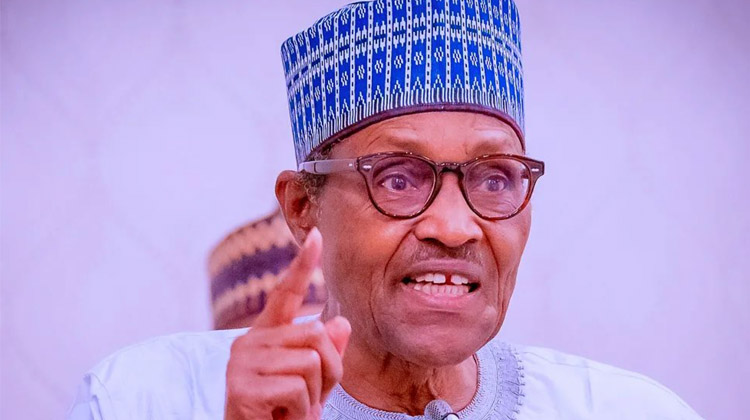Analysts and stakeholders in the finance and oil industry have once again renewed their call for fuel subsidy removal by the current administration of President Muhammadu Buhari, saying the continuous payment of a huge amount for subsidy is taking a big toll on Nigeria’s debt and fiscal deficit.
Already, the Minister of Finance, Budget and National Planning, Mrs Zainab Ahmed, has hinted at the removal of subsidy before May 29 when the life span of the current administration will come to an end.
Available data has shown that last year alone, Nigeria spent about N3.27 trillion in subsidising petrol. This means that an average of N272 billion is spent monthly in keeping fuel subsidies monthly.
Analysts have maintained that the process of subsidising the petroleum industry is hugely inefficient and does not complement government’s revenue drive, and has not alleviated the sufferings of low-income earners neither has it ended persistent fuel scarcity over the years.
- How I’m making brisk business from garlic – 17-yr-old trader
- How to make money from palm oil – Miller
While stakeholders support government’s decision to remove the subsidy, others believe subsidy did not exist in the first place, which points to the inefficiency in the Nigerian oil and gas sector.
Both the government and petroleum product marketers have justified the decision to increase the pump price of petrol, explaining that the decision has taken into consideration developments at the international oil market, where prices of oil have been recording recoveries.
On the basis of the development at the international market, the government has reiterated its position that the subsidy on the refined product, premium motor spirit (PMS) or petrol, has to go and would never return, so that the cost of petroleum products would henceforth be determined by the factors in the international crude oil market.
Subsequently, the Minister of Finance, Budget and National Planning, Mrs. Zainab Shamsuna Ahmed, who advanced the government’s decision on the issue while speaking recently at a stakeholder engagement, had stressed that incurring further costs on under-recovery has now been stopped permanently.
Her words: “Specifically, in relation to the extractive industry, we took the opportunity to remove fuel subsidy which has been a significant drain on our resources and on the economy.
“The government has decided to do this by adopting a price modulation mechanism, and the government strongly looks to remove the fuel subsidy provision from its revised budget and also from the Medium-Term Expenditure Framework (MTEF) for 2021-2023. Therefore, it would not nurse any plans to incur any expenditure on fuel subsidy, going forward.
“What that means is that the price of petrol will be determined by the global price of crude oil, so the price will keep changing, according to how the global market operates,” Mrs. Ahmed said.
Also speaking with newsmen recently, after the weekly Federal Executive Council (FEC) meeting presided over by President Muhammadu Buhari, at the State House, Abuja, Minister of Finance, Budget and National Planning, Mrs. Zainab Ahmed, disclosed that the $800m has been secured by the World bank and will be the first tranche of palliatives to be disbursed through cash transfers to about 50 million Nigerians, who belong to the most vulnerable category of society.
According to her: “When we were working on the 2023 Medium Term Expenditure Framework and the Appropriation Act, we made that provision to enable us exit fuel subsidy by June 2023. We’re on course, we’re having different stakeholders’ engagements, we’ve secured some funding from the World Bank, that is the first tranche of palliatives that will enable us give cash transfers to the most vulnerable in our society who have now been registered in a national social register.
“Today, that register has a list of 10 million households. Ten million households are equivalent to about 50 million Nigerians,” Ahmed said.
She added that government was ready to go beyond cash transfer to cushion the effect the subsidy removal would have on Nigerians.
Her words: “We also have to raise more resources to enable us do more than just the cash transfers and also in our engagements with the various stakeholders, the various kinds of tasks that we have go beyond the requirement of just giving cash transfers. Labour, for example, might be looking for mass transit for its members.
Corroborating the finance minister’s position, the Minister of State for Petroleum, Mr. Timipre Sylva, who recently resigned to pursue his political ambition, said Nigeria was no longer in the business of fixing fuel prices, and that global oil price crash had made removing the subsidies inevitable.
While declaring that removing subsidy was the way to go, he disclosed that the government was spending over N1trn yearly on under-recovery, a development he described as unsustainable.
Based on reports submitted to Federation Account Allocation Committee (FAAC), the total of NNPC cost-under-recovery for 2020 was N63. 689bn, N1.266trn in 2021 and N3.27trn in 2022.
Historical background of subsidy
Daily Trust on Sunday checks have shown that Nigeria started subsidising its petroleum industry in the 1980s after the state-owned company, Nigerian National Petroleum Corporation (NNPC) had planned to unify the price of crude oil in accordance with the global market.
But then-incumbent Head of State, Olusegun Obasanjo, reasoned that average Nigerians would not be able to afford a gallon of petrol at the pump. He instead introduced subsidy plan to keep the price of petrol low.
Daily Trust on Sunday recalls that Mr. Ibe Kachikwu, Former Minister of State for Petroleum, had said that a large volume of petroleum products was diverted by corrupt senior government officials. He also said that the officials connived with marketers and transport owners to divert already subsidised fuel from depots to neighbouring West African countries.
In December 2015, after many years of providing fuel subsidy, the Nigerian government announced a withdrawal of the subsidy. The reason given was that the government could no longer afford the payment due to a dip in the country’s revenue, caused by the huge drop in crude oil prices at the international market.
Subsequently, about four years after, oil prices at the international market were beginning to rise again, putting familiar upward pressures on unregulated local retail price of petrol.
Precisely in April 2016, with the intention of soaking up the inflationary pressures and keeping pump price of petrol at its then level of N86.50 per litre, the government announced the return of the subsidy.
In analysing the economic importance of the fuel subsidy, Senior partner at SPM Professionals, Paul Alaje, said the subsidy affects the local pump price of petrol directly and based on the law of demand, the quantities of petrol consumed by Nigerians indirectly.
He said: “Nigeria is a crude oil-producing state, the nation does not – mainly due to mismanagement of her refineries – refine its crude oil into component fuels, one of which is the petrol. Instead, the country exports the crude oil produced, and imports the refined products for most of the domestic consumption.
Thus, domestic pump prices of petrol, if unregulated by the government, will ordinarily fluctuate with crude oil prices at the international market.
To insulate Nigerians from the fluctuation, the government fixes a local pump price or retail price which is usually different from the full economic cost of supply. The government then either pays off the deficit or earns the excess, depending respectively on whether the fixed retail price is lower or higher than the full economic cost of supply at a particular point in time. Often, the amount the government pays in deficit is what is called the fuel subsidy.
“Now, why is it necessary that the fuel subsidy be removed, from an economic perspective? First, it ties down a large amount of government spending and places a fiscal burden on the economy, particularly when there is a huge difference between oil prices at the international market and subsidised domestic retail price of petrol,” he explained.
Also, according to Bloomberg, Nigeria spends on average whopping $7bn on fuel subsidy annually. Often, the fiscal burdens are financed by some combination of higher public debt, higher tax burdens, and crowding out of potentially productive public spending (for example, on health, education, and infrastructure), all of which could be a drag on economic growth.
Also, it has been argued that subsidy fund imposes large economic costs from certain negative influence. For instance, as a result of the subsidy, a unit of petrol in the country is cheaper than in some neighbouring countries, as such, it creates an arbitrage in which money-sniffing capitalists take advantage of the price differential and smuggle out the product to neighbouring countries for sale, solely to make more profit. Thus, the Nigerian government does not just subsidise its citizens, rather it subsidizes the neighbouring countries.
This is further compounded by the inaccuracies in the record of the volumes of refined oil imported into the country, funds used to pay the subsidy are sometimes mismanaged or unaccounted for.
Similarly, it is said that petrol subsidy is provided mainly to serve the social goal of reducing fuel cost and increasing access among the poor and currently unserved households. However, energy subsidies in general have proven to be ineffective and inefficient as fuel subsidies still persist.
Today, major petrol stations sell fuel at N195 per litre while in states, the product sells for as high as N250 per litre, defeating the aim of fuel subsidy.
Oil marketers support removal
Meanwhile, the marketers and other stakeholders in the nation’s petroleum downstream sector, speaking on the issue of subsidy removal across the country are unanimous in their views that the decision to allow market forces to determine the price of petrol was not only healthy for the downstream sector but good for the Nigerian economy which has been quite burdened with the subsidy system.
The chairman of the Major Oil Marketers Association of Nigeria (MOMAN), Mr. Adetunji Oyebanji, said the association has welcomed the government’s action in allowing the market to determine prices, noting that this would prevent the return of subsidies while allowing operators the opportunity to recover their costs. He said this will, in the long run, encourage investment and create jobs.
He explained that though prices at the pump would need to be adjusted to reflect realities of the increase of ex-depot prices by the PPMC, the magnitude of the increase, timing and location would be determined by the individual company.
Mr. Oyebanji, who expressed the views of his members in a statement, said: “Consistent with global best practices, MOMAN does not dictate prices to its members as this would be anti-competition in a fully deregulated market.”
The MOMAN chairman, however, called on the Ministry of Petroleum Resources to intensify its public awareness drive to educate the populace on the current realities.
“The Ministry of Petroleum Resources should also be telling Nigerians that we can no longer afford subsidy. If we keep it, the investment in infrastructure, health, education, etc., will not be possible. We are borrowing so much to finance our budget. We spent over a trillion naira on subsidy the other year. It is unsustainable,” he further stated.

 Join Daily Trust WhatsApp Community For Quick Access To News and Happenings Around You.
Join Daily Trust WhatsApp Community For Quick Access To News and Happenings Around You.

